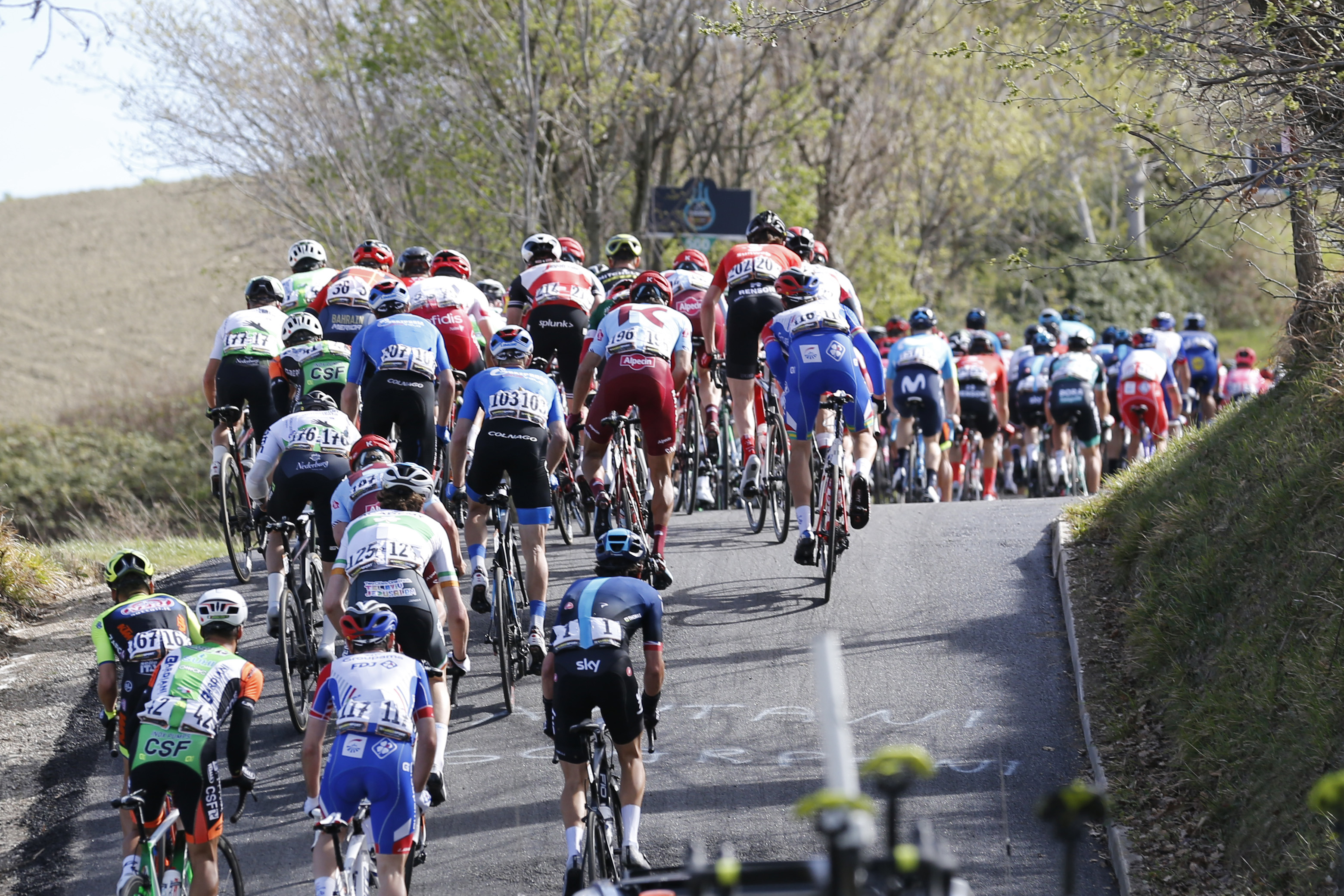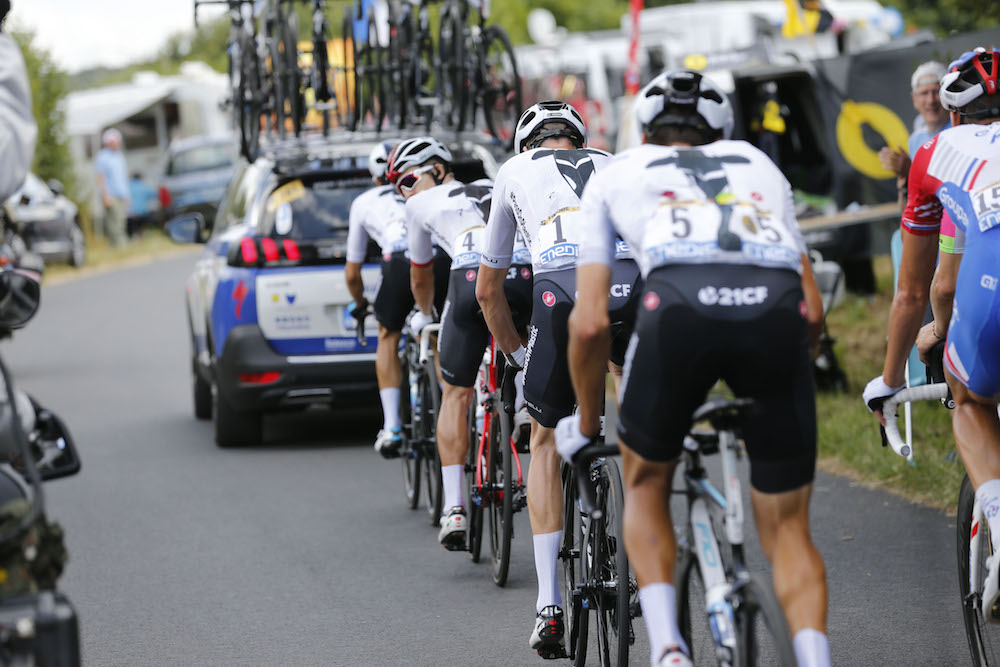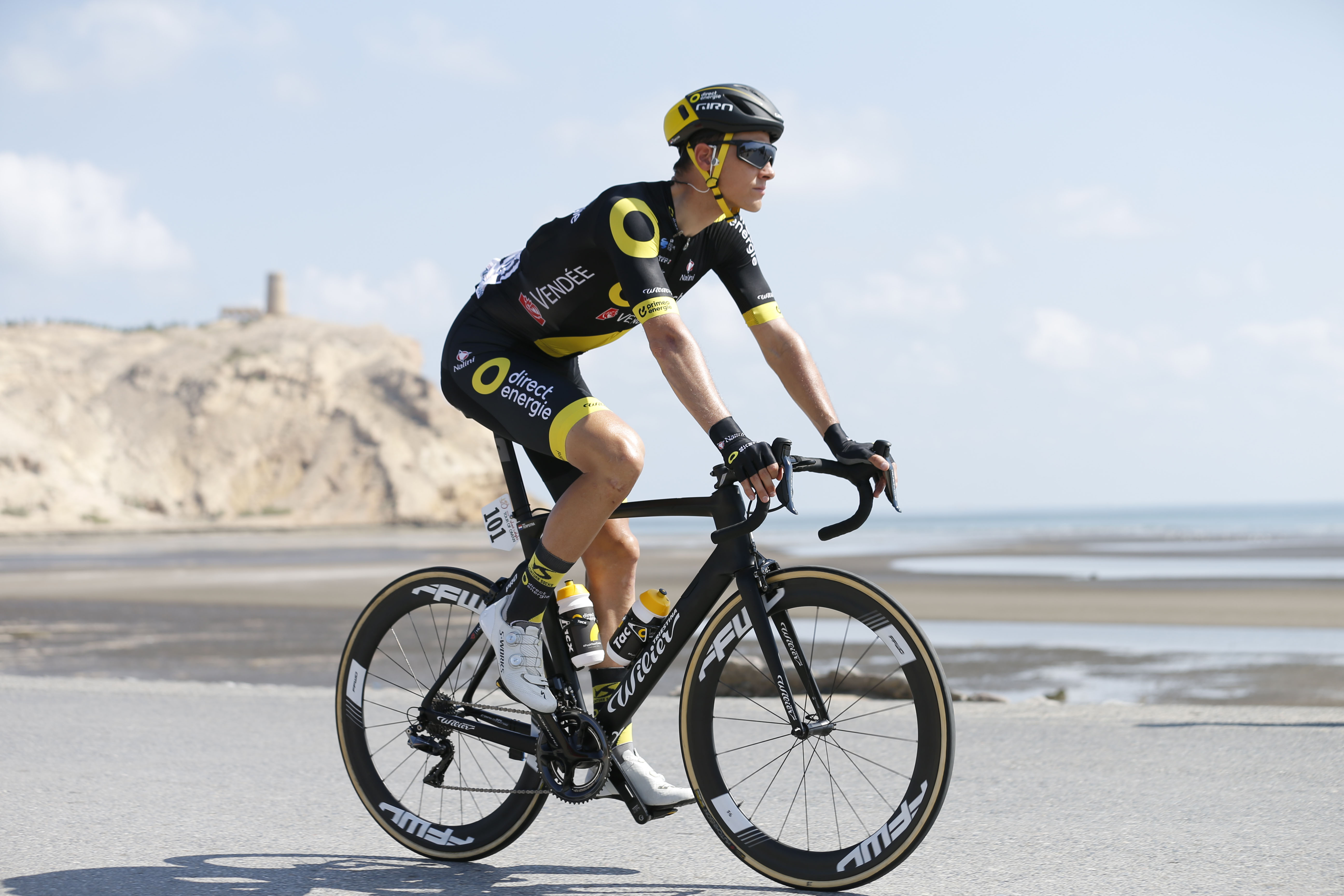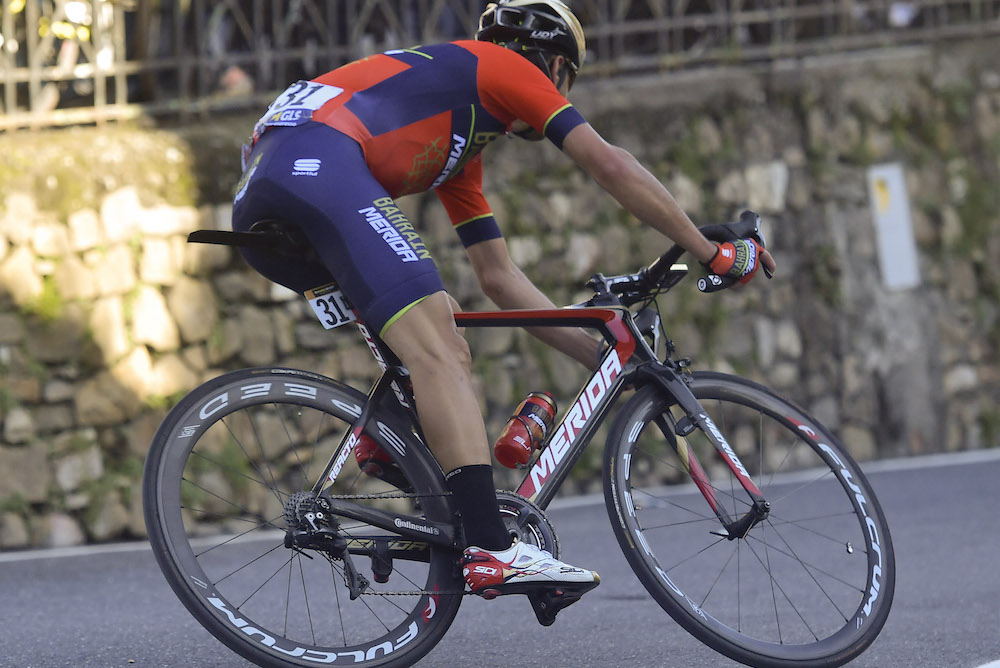Why it's up to cycling fans and the media to hold team sponsors accountable for their actions
Ineos and Total may have bailed out two leading teams, but we shouldn’t let them get away with greenwashing their corporate image

The peloton at the 2019 Tirreno-Adriatico (Sunada)
In a week when petrochemical giant Ineos has confirmed that it will be investing heavily in team sponsorship following its takeover from Sky in May, with a reported annual budget of £40 million, and French oil company Total is reported to be on the verge of becoming the new backer of the Direct Energie team, pro cycling’s perennial scramble to find cash seems to have a taken an unexpected and very beneficial turn.
The news has been widely welcomed, with Deceuninck boss Patrick Lefevere, for instance, tweeting: “If it’s true that #Ineos and #total are making their entree [sic] in cycling then this is fantastic news for cycling. Hope that others will follow.”
>>> Team Sky funding boost under Ineos sparks budget cap discussions
There are, though, other figures that should be taken into consideration as a result of these moves. Let’s start with the US$28 million or £22 million that is Total’s annual spend on lobbying to block climate change policies. The French company, one of the world’s big five within its sector, also spends almost twice that same amount each year on climate-focused branding, which may well include its backing for Jean-René Bernaudeau’s squad from next month.

Consider too the 40kg (88lbs) of plastic that was found inside a young whale that washed up dead on a beach in the Philippines last week. Or the 1.4 million schoolchildren who went on strike in more than 2,000 cities across the world on March 15 urging adults to take responsibility and stop climate change.
In condemning Ineos’s takeover of Team Sky, Friends of the Earth’s Tony Bosworth stated, “It’s a harsh change of tone that may see Sky’s Ocean Rescue campaign to clear plastic pollution from our oceans ditched from the team jersey in favour of Ineos – one of the biggest plastic producers in Europe.”
Taking Bosworth’s comment further, the question arises of whether the investment these companies make in cycling, the greenest and most democratic mode of transport bar shanks’ pony, should be challenged.
Get The Leadout Newsletter
The latest race content, interviews, features, reviews and expert buying guides, direct to your inbox!
Governments and sporting federations have done this in the past, notably in blocking sponsorship by tobacco companies. Similarly, the Italian government introduced legislation earlier this year to prevent betting companies sponsoring sports teams. Comparable legislation in France led to Unibet withdrawing from sponsorship of a bike team a decade ago, although subsequent changes to the law have enabled the betting company to enter the French sports sponsorship market.

The UCI also has the ability to block certain sponsors, its regulation 1.1.089 stating: “Without prejudice, of the applicable law, no brand of tobacco, spirits, pornographic bis products or any other products that might damage the image of the UCI or of cycling in general shall be associated directly or indirectly with a licence-holder, a UCI team or a national or international cycling competition.”
It drew on this clause recently when revoking the affiliation of the Porn Pedallers Cycling Club in the UK.
It could be justifiably argued that a link with petrochemical and oil companies, such Total, Ineos, the conglomerate backing Astana and the oil-based economies of the UAE and Bahrain also damage the image of cycling. However, the precedent set by the UCI’s confirmation of the latter three teams, as well as the lack of heed that the ruling body has shown to political and human rights, exemplified by its award of the 2016 World Championships to Qatar, confirm that this won’t happen.
As a result, it is down to the political and economic pressure groups, the media and individuals to challenge these sponsors.
We may have to accept them being part of cycle sport, but their presence in this most public and high-profile of forums provides an opportunity to highlight and criticise their policies, to spread awareness and perhaps even bring about change for the better.

Consequently, just as Chris Froome, Geraint Thomas and Sky’s other stars are sure to be pressed on their support for Ocean Rescue and how this squares with their team’s sponsorship by Ineos, other teams and riders should also come under greater scrutiny.
For example, let’s hail the achievements of Vincenzo Nibali, Fernando Gaviria and Dan Martin and other big names on the Bahrain and UAE teams, but while being aware and refusing to condone political restrictions and human rights abuses in those countries.
If we want to promote political, social and environmental change, it’s no good simply cheering schoolchildren’s strike actions, tweeting dismay at the latest abuse of human rights, or expressing shock when the next whale washes up dead having unwittingly swallowed a stomach-load of human waste.
We all need to channel our inner Greta Thunberg and Jimmy Carter in order to challenge these companies and regimes, to ensure that something fundamentally beneficial comes from their investment in cycling.

Thank you for reading 20 articles this month* Join now for unlimited access
Enjoy your first month for just £1 / $1 / €1
*Read 5 free articles per month without a subscription

Join now for unlimited access
Try first month for just £1 / $1 / €1
Peter Cossins has been writing about professional cycling since 1993, with his reporting appearing in numerous publications and websites including Cycling Weekly, Cycle Sport and Procycling - which he edited from 2006 to 2009. Peter is the author of several books on cycling - The Monuments, his history of cycling's five greatest one-day Classic races, was published in 2014, followed in 2015 by Alpe d’Huez, an appraisal of cycling’s greatest climb. Yellow Jersey - his celebration of the iconic Tour de France winner's jersey won the 2020 Telegraph Sports Book Awards Cycling Book of the Year Award.
-
 FDJ-Suez, SD Worx-Protime, Lidl-Trek confirmed for Tour of Britain Women as strong list of teams announced
FDJ-Suez, SD Worx-Protime, Lidl-Trek confirmed for Tour of Britain Women as strong list of teams announced18 teams set to take part in four-day WorldTour stage race
By Tom Thewlis
-
 Cyclists could face life sentences for killing pedestrians if new law passed in England and Wales
Cyclists could face life sentences for killing pedestrians if new law passed in England and WalesReckless cycling currently carries a maximum two-year jail term
By Tom Thewlis